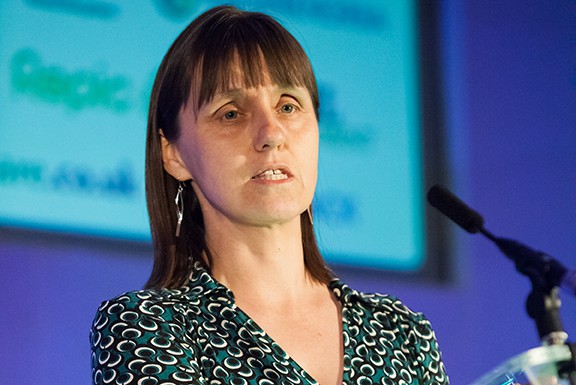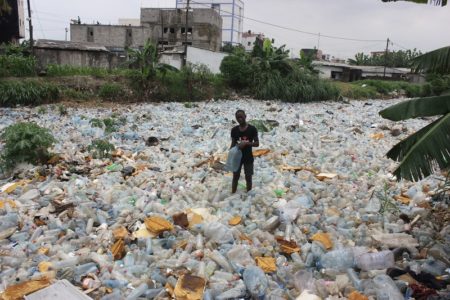Speaking at the CIWM’s Resourcing the Future earlier today (14 June), Ms Hill highlighted consumption as the main issue to tackle, and said steps to reduce this further have to come from government policy.
She said: “We have to be very clear about the conditions of success. These conditions are created by the government’s policy frameworks, which also create the security needed for investment. That is the key to everything.

“Behaviour change works, but only until it hits barriers that only policy can unlock,” she added. “We have the tools; we just need to get better at using them. And, we need to advocate strongly for policy framework.”
Minister
The session began with a video address from the Resources and Waste Minister Jo Churchill. The minister laid out the Resources and Waste Strategy’s roadmap to shift society towards a more circular economy.
She said: “We want to make recycling easier and ensure there’s a comprehensive, consistent service across England that would increase the recycling of packaging, food and other recyclable materials for households and businesses.”
She then spoke about the upcoming mandated food waste collection and a deposit return scheme for drinks containers as a way “to provide higher quality recycling for reprocessors and to determine littering of these containers”. She also touched on the plastic packaging tax, in effect since April, and extended producer responsibility, which will place the responsibility for managing the packaging on the market onto its producers from 2023.
Circular economy
The need for reduced consumption and a shift towards reuse was also emphasised in case studies that followed.
Rebecca Trevalyan from Library of Things introduced the project as a community scheme focused on renting household items instead of buying them. She pointed out that 80% of household items are used less than once a month.

Having started in 2014 as a three-month experiment, the scheme has now partnered with over 20 London councils and community organisations. Borrowing points can be found in 10 locations across London, including Sutton, Hammersmith, Kentish Town and others.
Another reuse initiative, titled Many Happy Returns, aims to enable reusable packaging systems and reduce the need for single-use plastic. With the addition of psychology and linguistics, the project is set to provide research into consumer reactions to reusable packaging and the role of language in encouraging reuse, as well as the technical and scientific basis.
Global issue
Michelle Wilson, Circular Economy Network director at WasteAid, pointed out that the conversation around waste is a global one and can’t be kept in the UK. She spoke about the charity’s work in low and middle-income countries including India, Vietnam, South Africa and others.
“Where we work, waste recovery is vital,” Ms Wilson stated. “The circular economy in these countries is driven by poverty – you have to reuse.”
“Grassroots organisations are the key resource in recovery in low and middle-income countries.”
She explained that local initiatives often lack the access to capital and expertise, which is where WasteAid is trying to help by providing training and funding.











Subscribe for free